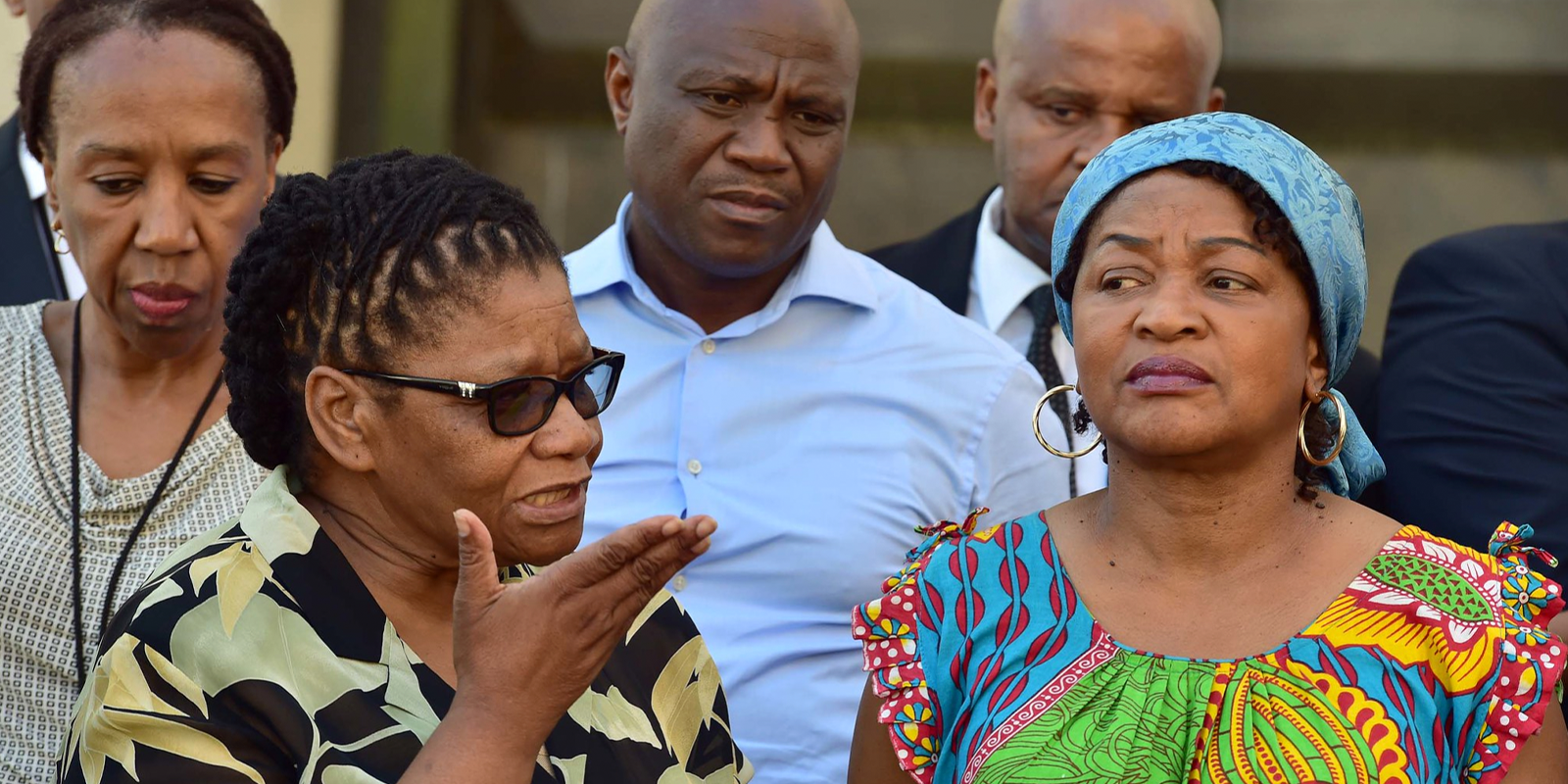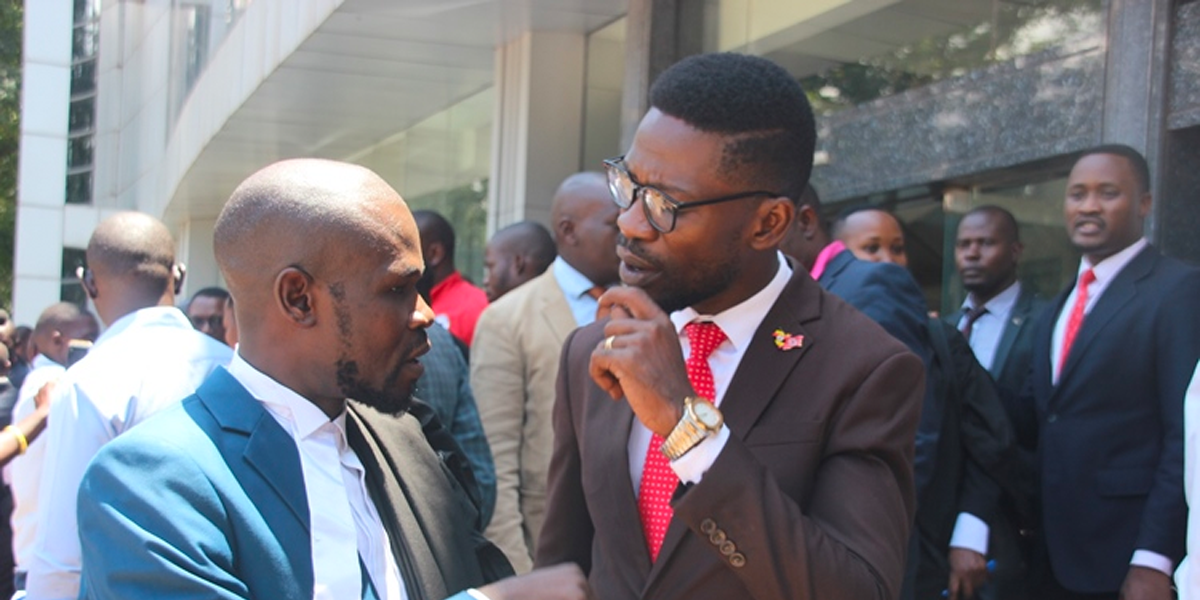News
Defence Minister Thandi Modise’s Dangerous Dance with Putin
In the calculus of benefits — party versus state, arms industry versus the economy, expediency versus human rights — South Africa can only be a loser if it’s selling weapons to Russia. And if it’s not, why did the defence minister not simply say so?

Research Director, The Brenthurst Foundation

Director, The Brenthurst Foundation

It is possible, perhaps likely, that right now South African armaments, explosives or propellants are being used by Russia in its illegal occupation of parts of Ukraine.
If this is indeed the case, it would make South Africa complicit in the prosecution of an unjust war, but more than that — complicit in some of the most brutal acts of terrorism against a civilian population, including the targeting of schools, places of worship and civilian infrastructure.
It would also, if true, expose South Africa to possible secondary sanctions from Western nations. If so, once more South Africa would find itself a polecat among respectable nations, sanctioned by its peers and principal trading partners. It may indeed hinder the development of the South African arms industry itself.
Of course, we don’t know whether or not South Africa is supplying arms as the government refuses to confirm or deny this.
But the response of the defence minister, Thandi Modise, to a written question by the DA leader, John Steenhuisen, is revealing if somewhat bewildering.
The question was: “Whether the Armaments Corporation of South Africa sells arms and ammunition, propellant powder and/or explosives to the Russian Federation? (1) If not, what is the position in this regard? (2) If so, what are the relevant details?”
What was remarkable about Modise’s answer was her unwillingness to provide the simple answer”’no”, which would have settled the matter and given some legitimacy to South Africa’s threadbare claim to be “neutral” in relation to the conflict.
Instead, she said: “Armscor may also, with the approval of the minister, exploit such commercial opportunities as may arise out of the corporation’s duty to acquire defence materiel or to manage technology projects. Armscor may therefore from time to time enter into commercial agreements with foreign entities and/or governments, including the Russian Federation, subject to the National Conventional Arms Control Act, the Regulation of Foreign Military Assistance Act, and the Non-Proliferation of Weapons of Mass Destruction Act.”
She went on: “In the execution of its mandate, Armscor complies with the provisions of all relevant legislation as mentioned above. Agreements of such nature are normally classified and protected by confidentiality clauses, as it relates to security information where unauthorised disclosure may cause serious implications to the national security.”
It would seem obvious from a scan of the limitations on arms sales that Russia would not qualify for several reasons.
Armscor’s summary of the limits includes a prohibition on sales to countries where technology, materiel or equipment “could be used for the development or production of weapons of mass destruction”. There are probably no remaining South African technologies that could be sold on to support the development of nuclear, chemical or biological weapons that the Russians don’t already possess, so cross that off the list.
But, Armscor says, South Africa may not sell armaments to “countries involved in the systematic violation or suppression of humanitarian rights and fundamental freedoms”. This is a strikeout for Russia, which is engaged in all of these activities on a large and publicly documented scale in Ukraine.
Also prohibited are sales to “countries, individuals, groups, undertakings and entities involved in international terrorism”. Since this is the mandate of Russia’s Wagner group in Africa, it’s a second strikeout for Russia.
South Africa is also called on to “avoid trade in conventional arms with countries involved in armed conflict”. That’s another strikeout.
With it so abundantly clear that Russia would not pass muster, why has Modise failed to provide a clear, unequivocal answer?
It is possible that South Africa is not selling arms to Russia but doesn’t want to say so because this would annoy its friends in Moscow, whom it pretends are legitimate participants in the world of free nations, allowing oligarchs to berth their yachts in Cape Town and others to make party donations.
The problem is, however, that the refusal to provide a straight answer opens the door to the possibility that South Africa is, indeed, supporting Russia’s military in some way. After all, if it’s not a simple “no”, it’s probably a “yes”.

When it comes to missile propellants and the technology needed to build sophisticated weapons, South Africa could be helpful, especially now that sanctions have severely restricted Russian access to technology.
It is also possible that South African materiel is finding its way to Russia via third parties. In June 2021, a little-publicised amendment to legislation relaxed the need to verify that arms were not finding their way from legitimate customers to disqualified third parties, chiefly, it was believed, to allow the sale of weapons to Saudi Arabia and the UAE, which were, in turn, supplying them to third parties in the Yemen conflict.
The amendment was telling. Whereas verification that the arms were not moving to a third party had been performed by an inspector on the ground, this could now happen through the “diplomatic process”.
Given South Africa’s somewhat compromised line on Russia, such diplomatic processes are highly likely to provide a favourable result for Russia.
The trouble is that Modise’s defiant refusal to answer a straight question with a straight answer has once again compromised South Africa’s standing and opened us up to the accusation that our support of Russia goes beyond our fatuous “whataboutism” to actual material support. And if South Africa is not actually selling to Russia, perhaps this is because it may like to, explaining the visit this August by the defence minister to Moscow.
If such an impression lingers, it could be catastrophic for South Africa, as the US is unlikely to tolerate its technology — chips in particular — getting to Russia through the back door. We can ill-afford to be technologically isolated on top of our other economic woes. It certainly won’t be of any assistance to those South African arms companies trying to sell into the US and European markets.
In the calculus of benefits — party versus state, arms industry versus the economy, expediency versus human rights — South Africa can only be a loser if it’s selling weapons to Russia. And if it’s not, why did the defence minister not simply say so?
This article originally appeared in Daily Maverick. (Image: GCIS)

